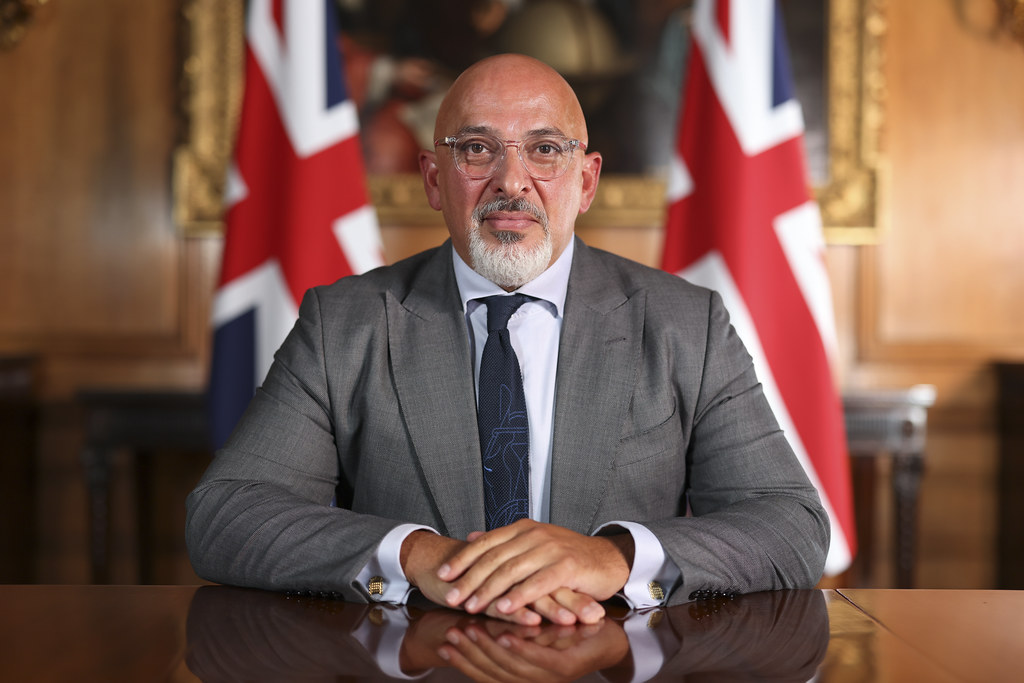New Schools Bill to boost education standards across the country

The Schools Bill is set to deliver on the government’s mission to raise standards across the country, increasing attendance and improve safeguarding for children wherever they are educated.
Education remains at the forefront of the government’s agenda because by ensuring every child receives an excellent standard of teaching in a high-performing setting, they will be given the opportunity to fulfil their future potential and secure the jobs needed to support our economy.
The bill, published today (Thursday 12 May), will pave the way for all schools to join a strong multi-academy trust. It provides the framework for a new, legally enforceable set of standards for academy trusts, replacing disparate standards agreed with each trust at the point it was created – so that parents will know what they can expect for their children. It introduces a new legal tool for local authorities to request some or all of their schools join a strong academy trust, in addition to the existing powers that individual school governing boards hold.
It includes new powers for Ofsted to gather evidence and act against schools operating illegally, and removes loopholes that allowed some settings not to register as a school despite having children attend during most or all of the school week.
Subject to the passage of the bill, inspectors will gain a new power to ‘search’ for evidence of suspected criminal activity in relation to the rare cases of illegally operating schools, removing another loophole where evidence could be hidden in locked cabinets or password protected computers, out of inspectors’ legal reach.
This bill follows the plans set out in the Schools White Paper, including a pledge to parents that if their child falls behind in English or maths they will receive tailored support to get back on track, and the ambition for 90% of children to leave primary school at the expected standard in reading, writing and maths by 2030. This will mean that every child no matter where they live are given the same opportunities to succeed.
Education Secretary Nadhim Zahawi said:
“My mission is clear; I want to make sure every single child across our country has access to an excellent education, supporting them to reach the full height of their potential.
“Between the strengthened safeguarding measures and greater accountability in our new Schools Bill, and our Schools White Paper ambitions to embed evidence, tutoring and excellent teacher training in the school system, I am confident we will achieve these ambitions for every child.”
Other stronger safeguards the bill sets out in relation to suspected independent school criminal activity include making it an offence for individuals to not provide information or assistance to Ofsted inspectors, in effect making sure Ofsted can gather witness statements to use in evidence.
Alongside this, reforms to expand the remit of the Teaching Regulation Agency will make sure unsuitable teachers are prohibited from the profession, regardless of whether they were currently teaching at the time of their misconduct.
Other safeguarding powers in the bill include a new legal requirement for local authorities to maintain registers of children not in school, helping make sure no child gets lost from the education system, as well as new requirements for schools, trusts and councils to work together to drive the highest possible levels of attendance in every corner of the country.
As all schools join multi-academy trusts, the new statutory academy standards will help make sure trusts themselves all remain strong, effective and able to command public confidence.
In the rare cases failures occur in trusts, there will a clear and consistent approach to dealing with them, as is currently the case for schools themselves.
The bill also encodes protections for grammar schools to retain their current status when joining multi-academy trusts, and for faith schools to similarly retain their existing freedoms.
This Bill also delivers on the government’s commitment to move to a direct National Funding Formula, increasing fairness by making sure every school receives funding on the same basis, wherever it is in the country.
This is all backed by huge government investment – core school funding will rise by £4 billion in 2022/23 compared with 2021/22, which represents a 7% increase per pupil. On top of this, £5 billion has been invested in the Government’s ambitious education recovery programme, including in the National Tutoring Programme, offering high-quality catch-up tutoring for students who fell behind during the pandemic.
By giving every child a good education, it gives them the opportunity to thrive and secure the jobs needed to support our economy – and this is absolutely vital to the government’s levelling up mission.
Sector Response
Paul Whiteman, General Secretary of school leaders’ union NAHT, said:
“Our expectation is that this bill should simply enable the policies previously outlined in the government’s white paper. As with all such bills, this is a complex, legal document and we will now spend time looking carefully at what it means for schools and school leaders so that we can respond accordingly. We will be looking particularly closely at any new powers the government is seeking to take, and the impact this could have on schools.
There are a number of what appear to be quite sensible measures within this bill, including a proposed new legal requirement for local authorities to maintain registers of children not in school. This is something NAHT has long called for. Equally, we support new powers to challenge the very small number of schools that are operating illegally.
When it comes to the future of the school system, it is clear that the government will not be able to rely on legislation to achieve its stated vision. There remain a wide range of questions that the government still needs to answer about its plans for a ‘fully trust-led’ system. This draft legislation does not provide those answers. The decision on whether or not to become an academy or to join a multi academy trust is one that must continue to sit with the governing body of each school and we know that the government still has work to do to convince many school leaders and governors of the merits of their vision.
This bill will now quite rightly go through the full parliamentary process and should be scrutinised thoroughly.”
Bridget Phillipson MP, Labour’s Shadow Education Secretary, responding to the publication of the Government’s Schools Bill, said:
“Parents will be left wondering if this is really the limit of the Conservatives’ ambition for our children. No plan to support pandemic recovery, no plan to improve teaching standards, no plan to deliver the broad education that employers, parents and young people are calling for.
“Tackling illegal schools is necessary, but the Government should be using this opportunity post-pandemic to improve standards and experiences for every child not just close the loopholes that they’ve presided over for 12 years.
“Labour would be using this opportunity to support every child’s recovery from the pandemic with new opportunities to learn, play and develop, and getting on with ending tax breaks for private schools to improve education for all our children. With 6,500 new teachers, professional careers advice and guidance for every child we would be delivering a brilliant education for every child which equips them with the skills they need for work and for life.”
Kevin Courtney, Joint General Secretary of the National Education Union, said:
“Our education system faces deep problems: a crisis of funding, a shortfall in provision for special needs, rising child poverty, workload issues that are so intense that they drive teachers out of the profession.
“We need serious and wide-ranging legislation.
“Instead, the Schools Bill reveals a government trapped in the policies of the past. Forcing or inducing schools to become academies is not the answer to education’s problems. Piling the pressure on schools to drive up SATs results is not the way to improve education quality. Measures to increase attendance can only be beneficial if the education that schools are able to offer is really engaging to students.
“To be relevant to real world problems, the Schools Bill needs comprehensive amendment.”
Geoff Barton, General Secretary of the Association of School and College Leaders, said:
“While we think the Schools Bill and the recent white paper lack ambition in their entirety, we do welcome some of the specific measures which are planned.
“There has long been a problem with unregistered schools in terms of both a legal grey area over exactly what constitutes a school, and a lack of robust investigatory powers to gather evidence that a school is operating illegally. This situation represents a safeguarding risk to young people who may be receiving education in an establishment which is not operating at the standards required of schools. Action to tighten the law is long overdue and much needed. We are pleased that the Schools Bill includes measures to address this situation.”











Responses